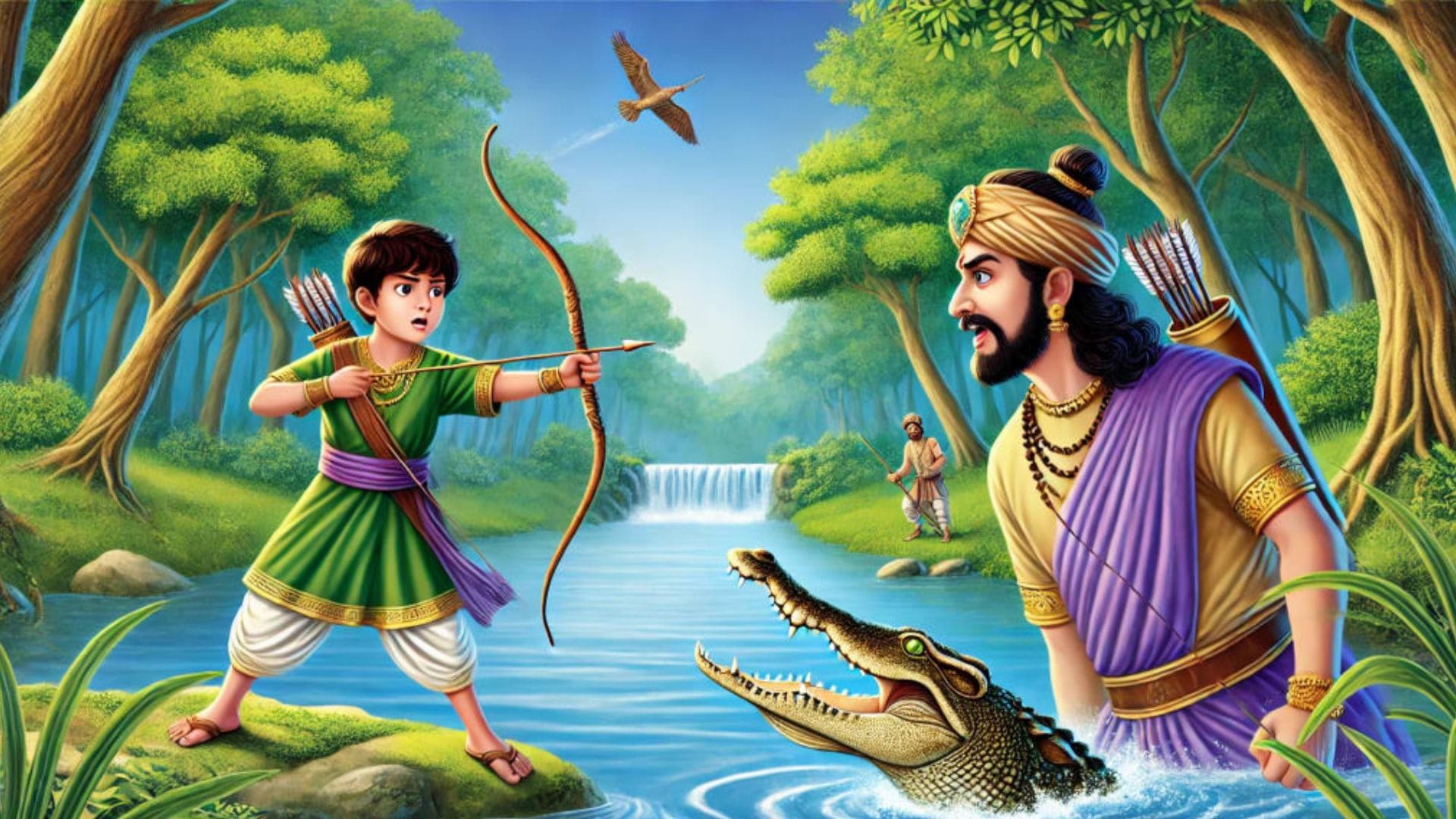
The Bond Between Drona and Arjuna: A Teacher’s Favoritism and a Disciple’s Devotion
Drona actually wanted his son Ashwathama to be most powerful warrior, even surpassing himself.
BTW, Drona already had a soft-corner for Arjuna, even before the training began., because,
One day Drona called them apart and making them touch his feet, said to them with a swelling heart, 'I have in my heart a particular purpose. Promise me truly, ye sinless ones, that when ye have become skilled in arms, ye will accomplish it.'
"Vaisampayana continued, 'Hearing these words, the Kuru princes remained silent. But Arjuna, O king, vowed to accomplish it whatever it was. Drona then cheerfully clasped Arjuna to his bosom and took the scent of his head repeatedly, shedding tears of joy all the while.
Whilst training the Kuru princes, Drona assigned a task to them, to fetch water from nearby river. He gave narrow mouthed vessels to all except for his son,. as a result, Ashwathama always returns first and Drona taught him several secret techniques, whilst others were busy with the task. Arjuna came to know about this and one day used Varunastra to fill the pot, and continued using this technique. As a result, Arjuna and Ashwathama received more special training compared to others. His devotion towards archery made him the favourite student of Drona.
And in the intervals so gained, Drona used to instruct his own son in several superior methods (of using weapons). Jishnu (Arjuna) came to know of this, and thereupon filling his narrow-mouthed vessel with water by means of the Varuna
weapon he used to come unto his preceptor at the same time with his preceptor's son. And accordingly the intelligent son of Pritha, that foremost of all men possessing a knowledge of weapons, had no inferiority to his preceptor's son in respect of excellence.
Arjuna's devotion to the service of his preceptor as also to arms was very great and he soon became the favourite of his preceptor.
Drona had instructed his chef not to serve Arjuna food in the dark, hoping to prevent him from discovering a technique in archery known as Sonic Archery, shooting arrows without sight. However, one day while Arjuna was eating, wind blew out the candles. Arjuna, undeterred by the darkness, thought how he could continue eating in such condition. This led him to wonder if the same concept could be applied to archery, and he began practicing shooting arrows in the night. When Drona learned of this, he was deeply impressed by Arjuna's relentless pursuit of knowledge and excellence. Recognizing Arjuna's potential, Drona promised to do everything in his power to help him become the greatest archer in the world.
And Drona, beholding his pupil's devotion to arms, summoned the cook, and told him in secret, 'Never give Arjuna his food in the dark, nor tell him that I have told thee this.' A few days after, however, when Arjuna was taking his food, a wind arose, and thereupon the lamp that had been burning went out. But Arjuna, endued with energy, continued eating in the dark, his hand, from habit, going to his mouth. His attention being thus called to the force of habit, the strong-armed son of Pandu set his heart upon practising with his bow in the night. And, O Bharata, Drona, hearing the twang of his bowstring in the night, came to him, and clasping him, said, 'Truly do I tell thee that I shall do that unto thee by which there shall not be an archer equal to thee in this world.'
Similar Stories
Explore the exploits of Ghatotkacha during the Kurukshetra War, where his mastery of illusions and sorcery made him one of the greatest threats on the battlefield. From rescuing Bhima on the 4th day to terrifying Bhishma and the Kaurava army, and battling Karna and Ashwatthama on the 14th day, learn how his powers influenced the course of the epic Mahabharata.
Discover the transformative story of Satyavati, the fisherwoman who became a queen and shaped the destiny of the Kuru dynasty. From her celestial fragrance gifted by Sage Parashar to her pivotal role in King Shantanu's life, explore how her decisions and relationships set the stage for the Mahabharata's epic saga and the great war of Kurukshetra.
Explore the profound significance behind Lord Ram's worship of other deities as part of His divine Leelas. Discover how this act reflects His omnipresence, humility, and the lessons He imparted for humanity as Maryada Purushottam. Dive into the mystical nature of His actions, which continue to inspire devotion and awe, reminding us of the unfathomable depths of divinity.
Astrology, Mantras, Events, Stories & More.
